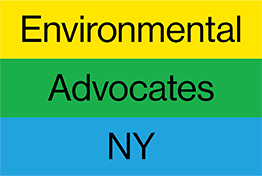Bill Memo: Fracking 2.0

Summary
This legislation amends Article 23 of the Environmental Conservation Law to extend the existing ban on high-volume hydraulic fracturing to include the use of carbon dioxide in gas and oil extraction.
Explanation
Fracking for oil and gas using any method is in direct conflict with the Climate Leadership and Community Protection Act (CLCPA), which has New York transitioning its economy off fossil fuels. Not only does fracking prolong the consumption of fossil fuels, but there is also considerable leakage of methane, a greenhouse gas, at every step of the gas extraction and transmission process.
The effort to ban carbon dioxide in fracking stems from its significant environmental and health risks, paralleling the dangers of traditional hydraulic fracturing, which prompted New York State’s prohibition of the practice. The introduction of carbon dioxide injection for methane gas extraction in the Southern Tier poses similar threats to water safety, air quality, and public health.
People living near natural gas drilling operations experience higher rates of a multitude of health impacts, including cardiovascular and respiratory diseases, cancer, low birth weights, and premature death. On top of this, the methane-containing shale formations in New York contain naturally occurring radioactive substances that are brought to the surface during the drilling process. Additionally, not all of the carbon that is injected will remain in the geological formations because of various fissures, fractures, and abandoned wells that offer pathways for leakage and contamination of aquifers with corrosive carbonic acid, endangering drinking water sources for millions. The potential for carbon dioxide pipeline ruptures presents acute risks of asphyxiation.
Beyond environmental and health concerns, carbon dioxide mining offers limited economic benefits to the region, with high risks for drilling workers and exaggerated job creation promises. Historical data indicates that fracking-related employment often goes to non-local workers, contributing little to local economies while posing significant health and safety risks.
These factors underscore the necessity of extending the ban on hydraulic fracturing to include carbon dioxide use in gas and oil extraction, aligning with New York State’s commitment to protecting the environment and public health.
Environmental Advocates NY Bill Rating: Substantial Benefit
Memo #: 19

